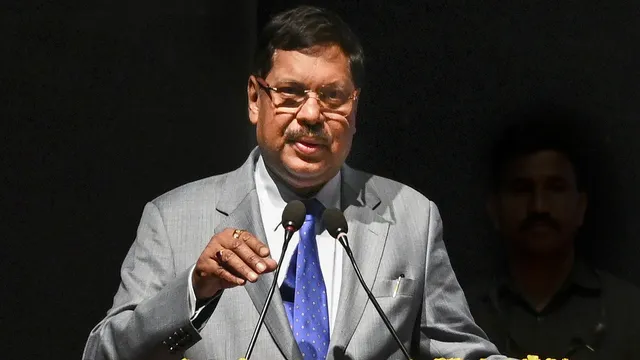- By Raju Kumar
- Wed, 26 Nov 2025 04:03 PM (IST)
- Source:JND
Bulldozer Action Row: Former Chief Justice of India (CJI) BR Gavai, who recently retired from the head of the top court, said if a bulldozer action is taken without proper procedures, the government will have to reconstruct it and recover the amount from the guilty persons.
"We had given a liberty to the citizens to knock the doors of the High Courts wherever there was a violation and we had also expected that wherever such grievances were brought to the notice of the court, we had laid down stringent measures that the person who is indulging in violation of the orders of the court, would be guilty for the contempt of the court," he said while speaking to the news agency ANI.
ALSO READ: 'If Truth Of Gorakhpur Comes Out...': Akhilesh Yadav Accuses UP Govt Of Corruption, Land-Grabbing
We had also directed that if such demolished houses, after following the proper procedures, are found to be illegally demolished, then the government will have to reconstruct it and recover the amount from the persons who are guilty, he explained.
#WATCH | Delhi: On 'bulldozer action', former CJI B.R. Gavai says in an interview to ANI, "We had given a liberty to the citizens to knock the doors of the High Courts wherever there was a violation and we had also expected that wherever such grievances were brought to the notice… pic.twitter.com/EIUVbzEdex
— ANI (@ANI) November 26, 2025
Judicial Activism Should Not Turn Into Judicial Terrorism: Gavai
There are limits within which judicial activism should act, Gavai said, adding that, as I always say, judicial activism should not turn into judicial terrorism. Ultimately, our Constitution believes in the separation of power between the legislature, executive and the judiciary, he highlighted.
When asked if he ever faced any pressure from the executive or politicians, he replied, "No, genuinely no.."
(With ANI inputs)

